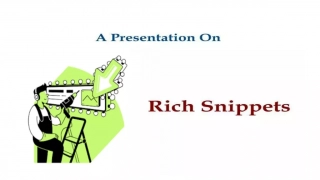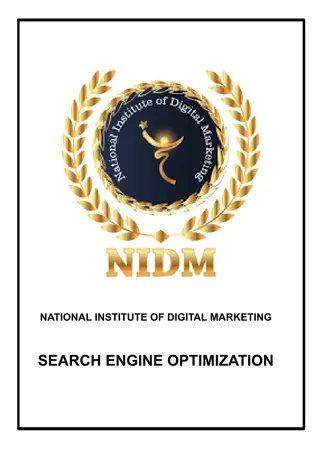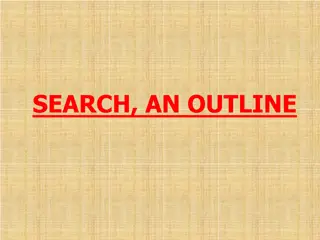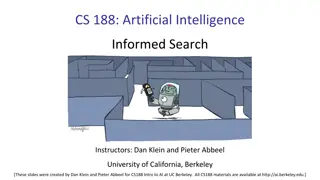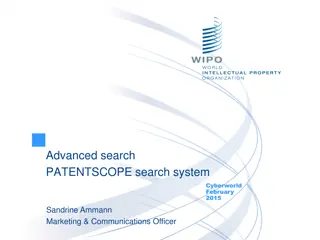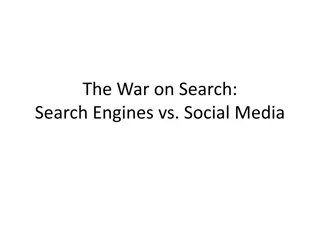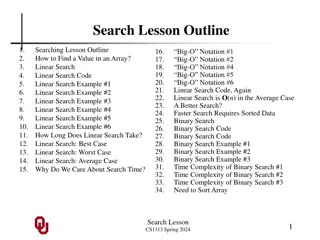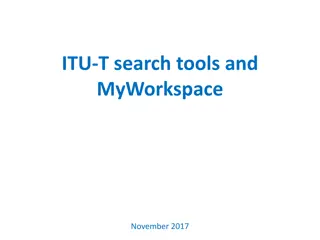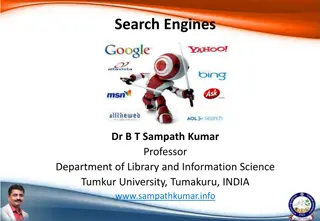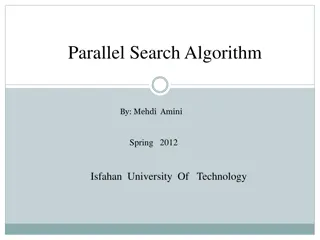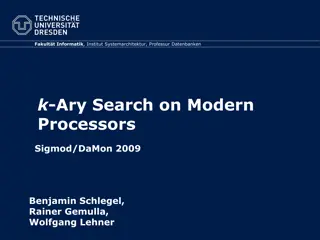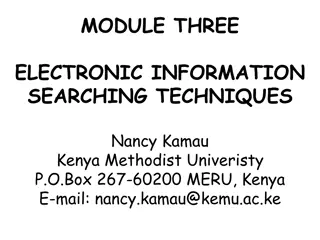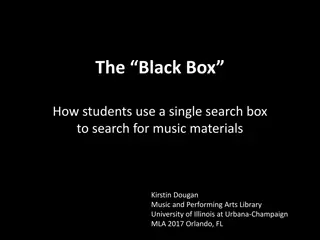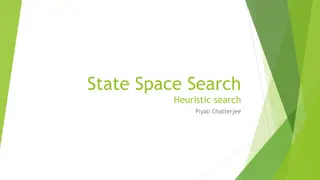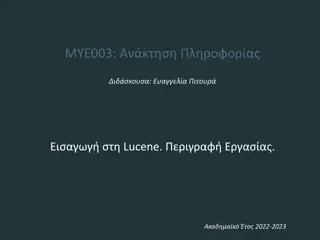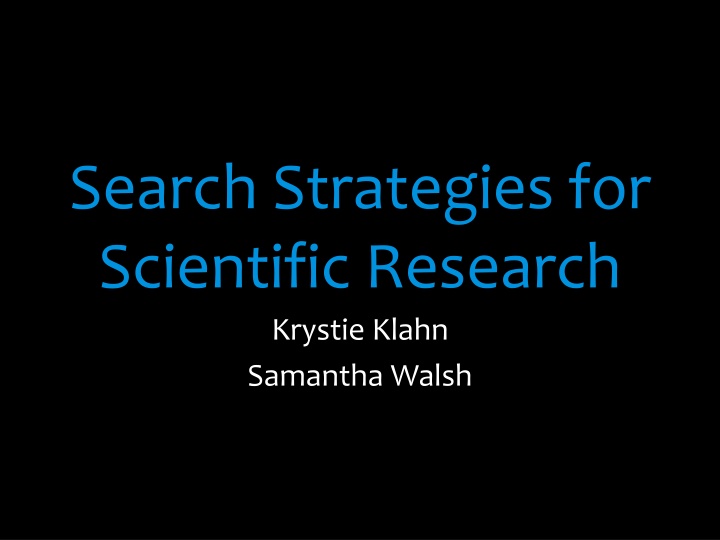
Effective Strategies for Scientific Research and Information Retrieval
Explore various strategies for conducting scientific research, including utilizing library resources, citation finders, and scientific databases like Scopus. Learn about the importance of RSS feeds, utilizing CLIO for catalog searches, and maximizing tools like LibX Widget for efficient information retrieval.
Download Presentation

Please find below an Image/Link to download the presentation.
The content on the website is provided AS IS for your information and personal use only. It may not be sold, licensed, or shared on other websites without obtaining consent from the author. If you encounter any issues during the download, it is possible that the publisher has removed the file from their server.
You are allowed to download the files provided on this website for personal or commercial use, subject to the condition that they are used lawfully. All files are the property of their respective owners.
The content on the website is provided AS IS for your information and personal use only. It may not be sold, licensed, or shared on other websites without obtaining consent from the author.
E N D
Presentation Transcript
Search Strategies for Scientific Research Krystie Klahn Samantha Walsh
How do you currently conduct your research?
Remember your Library Links Settings!
Choose wisely http://hansel.co.in/wp-content/uploads/2013/07/Feedly-Logo-White-Color2.jpg
Virtual shelf browse CLIO Record for the eBook, Mars:
USE citation finder When you know of a journal article and want to check if Columbia has access/where to find the article DO NOT USE citation finder as a search function Citation Finder Kroeker, K. J. (2013-06). Impacts of ocean acidification on marine organisms: quantifying sensitivities and interaction with warming. Global change biology, 19(6), 1884- 1896. doi:10.1111/gcb.12179
LibX Widget Firefox and Chrome add-on which provides direct access to Columbia Library collections. quickly search a highlighted text Reload via Columbia Libraries Off-Campus Proxy file
CLIO can only do so much, what else might I use? Scientific databases!
What is Scopus? Scopus is a citation index of peer-reviewed literature: scientific journals, books, patents, and conference proceedings Scopus should be used as a mining tool - a way to get an idea of what research/writing is out there for your research interest Scopus is updated daily and gives you an idea of who is researching and writing as well as who is publishing work in any given field Covers Life, Health, Physical and Social Sciences, as well as the Humanities Scopus searches all of PubMed and Medline
Lets dig into Scopus!
What is web of science? Web of Science is a citation index that searches peer-reviewed literature in the sciences and humanities as well as data sets, patents, conference proceedings, clinical trials, etc. Material searched by Web of Science goes as far back as 1865 Web of Science is more exclusive than Scopus, focusing more specifically on the sciences
Lets dig into Web of Science!
Columbia doesnt have access? Its checked out? Inter Library Loan(ILL) Use for: Articles, Book Chapters, and Non-book loans (DVDs, microfilm, dissertations, maps, etc.) Loans from a library other than the Borrow Direct partners (including international, public, law, medical, special collections, etc.) Borrow Direct Use for: Books 3-4 business-day delivery 6-week loan period, one renewal
Browse the Subject Guides Subject Guides bring together the best resources for different subjects Subject Guides will also give you a librarian point of contact should you need further research help Subject Guides link to databases, e- book collections, software, e- journals, reference sources, web- based tools, and more!
You can Always Ask A Librarian! This virtual reference service weekdays from 9 am- 9 pm and Sundays from 1 pm- 9 pm Your question will be answered by a Columbia University librarian or library intern in an Instant- Message(IM) style conversation We can help you locate specific resources, or get you started on a new research journey Columbia Librarians are also always available to schedule one-on-one consultations to help with your research!
Tumblr http://columbiascience.tumblr.com/
Take Home Tips: Use RSS! Search for related materials using the Virtual Shelf Browse. Searching for a specific article? Use the Citation Finder tool. Install the LibX add-on. Use scientific databases for in-depth searching. Follow Science @ Columbia.
Let us help you further! Email: ref-sci@columbia.edu

